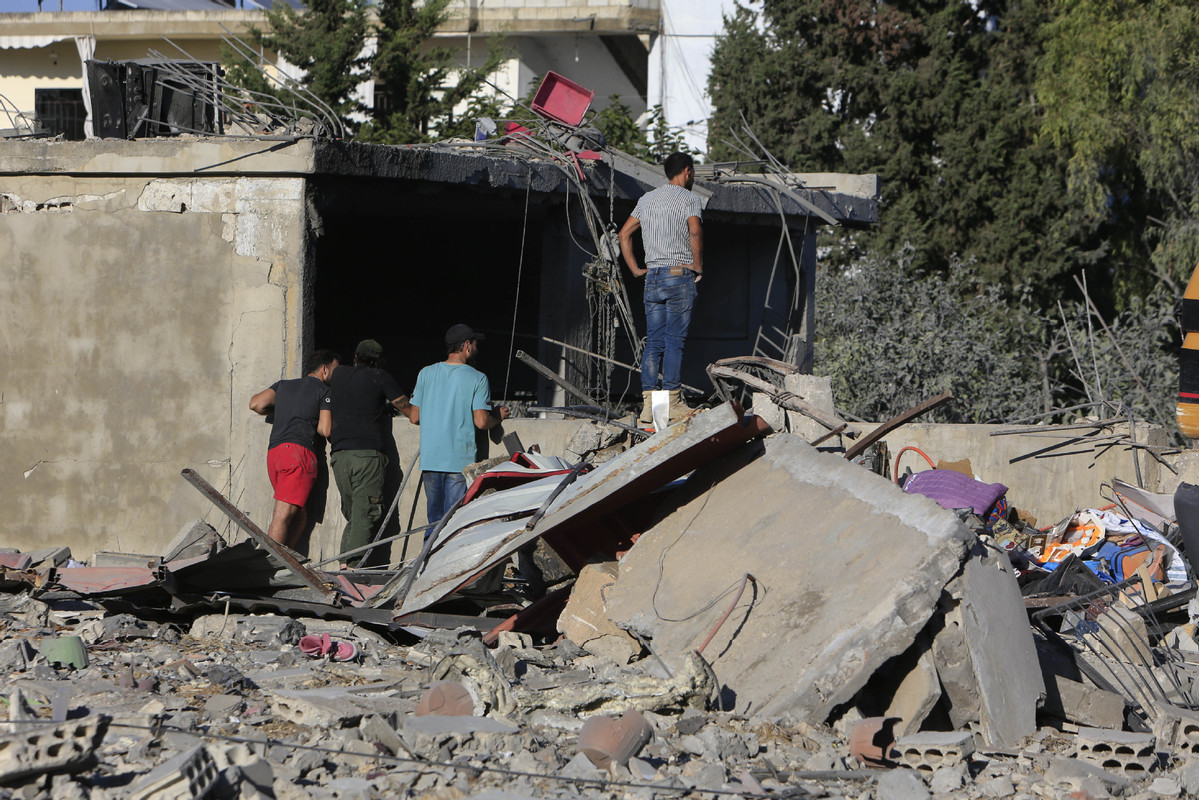Double act cause for grave concern: China Daily editorial
chinadaily.com.cn | Updated: 2024-10-10 21:34

As the single-minded Benjamin Netanyahu Cabinet doubles down on its war against Israel's regional foes, the anxieties of Israel's Western allies about the prospect of the ongoing conflict escalating into a Middle East war are growing.
But it seems increasingly obvious they will not be able to rein in the Netanyahu government, which seems lost in a berserker-like frenzy of violence for violence's sake. This inability leaves Israel's closest allies in an awkward position as it promises to leave them facing troubles far beyond the credibility conundrum they already face.
Balancing support for Israel's crackdown on alleged terrorist threats and handling the worsening resultant humanitarian crisis as the Israel Defense Forces intensify their clearing offensives in the Gaza Strip and Lebanon is proving increasingly tricky and sensitive for many Western governments.
At a meeting of the United Nations Security Council on Wednesday, the US' ambassador to the UN urged Israel to urgently address the "catastrophic conditions" among Palestinian civilians in the besieged Gaza Strip and to stop "intensifying suffering" by limiting aid deliveries. The United Kingdom's UN ambassador told Israel that it "must do much more" to avoid civilian casualties and ensure the UN and aid groups can operate safely and effectively in Gaza. While France's UN ambassador complained "delivery of humanitarian assistance is being hindered, and humanitarian workers are constantly under threat".
The head of the UN Palestinian refugee agency painted a grim picture of the situation, warning that "Yet again, Gazans are teetering on the edge of a man-made famine".
Turning a blind eye to the broadening humanitarian crisis is severely undermining the moral ground for not only Israel's ongoing offensives, but also that for Western support for Israel. But Netanyahu's eyes are focused solely on his military agenda, and he is dismissive of any calls to heed the humanitarian crisis that continues to worsen by the day and urgings that he end the military operations.
In his Sunday exchange with French President Emmanuel Macron, who called for stopping arms shipments to Israel to make way for a political solution, Netanyahu told the latter that placing restrictions on Israel will just serve Iran and its proxies.
Despite the acute international concern that Israel's present military operations in Lebanon may turn the country into another Gaza, and US President Joe Biden's reported warning that "the perception of Israel around the world increasingly is that you're a rogue state, a rogue actor", Netanyahu shows no sign of backing down. Instead, he said on Tuesday that Lebanon would meet the same fate as Gaza if its people did not rise up against Hezbollah.
Immediately after his Wednesday discussion on the phone with Biden on Israel's plan for retaliating against Iran's missile attacks, during which the latter urged him to avoid escalating the tensions and a further slide into a broader war, the Israeli defense minister simply promised that a strike against Iran would be "lethal, precise and surprising". Considering Teheran's warning of greater devastation in case of any Israeli counterstrike, the retaliation the Netanyahu government is preparing would only perpetuate the military tit-for-tat.
While the White House is reportedly increasingly frustrated at Netanyahu's disregard of US concerns, there seems to be little it can do about it. After all, tampering with arms supplies to Israel, which some believe is the most important leverage it has, is politically dangerous. The position the Biden administration has put the US in may prove disastrous for Kamala Harris and the Democratic Party's prospects in the November elections, with the dissatisfaction of Arab American voters in the battleground state of Michigan having the potential to hurt the Harris campaign dearly.
Israel has refused to embrace US proposals for a cease-fire in Gaza and Lebanon. That is why there has been speculation that Netanyahu is hoping to influence the US elections in favor of the Republican Party candidate, Donald Trump.
Trump has sided with Netanyahu, saying that the latter "knows what he's doing". While encouraging Netanyahu "to get this over with", Trump told reporters at a news conference on Aug 15 that he would give Israel the support that it needs to win fast.
It seems that it is not just the Netanyahu government that needs reining in, but the US as well because enabling Israel has become the default position as the presidential election looms ever closer.
























